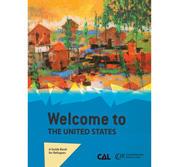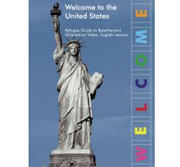Congolese Refugees in the United States, Swahili version
This 33-minute video includes interviews with refugees and community leaders from the Democratic Republic of the Congo (DRC) and refugee service providers, speaking about the resettlement experiences of newly-arrived and previously resettled refugees from the DRC. Speakers discuss employment opportunities, experience learning English in the United States, education for children and adults, inter-ethnic co-existence, family adjustment, emotional health, and other matters that affect the refugees’ daily lives.
Transcript of Congolese Refugees in the United States Video (English)
Reflection Questions
1. Many of the speakers in the video talk about the importance of learning English. What are some of the reasons they give? What are some ways to learn English? How do you plan to learn English? What challenges might you face?
2. What types of jobs are the speakers in the video doing? What type of job would you like to have? What makes a person successful at their job?
3. The nurse in the video says that it is common for people arriving to a new country and culture to experience many different emotions. Who can people reach out to for help when dealing with these emotions? What examples are provided in the video?
4. “America has a lot of families from different nationalities,” one of the speakers in the video says, noting that people with different backgrounds work together, learn together and live together in the United States. Do you have friends who speak a different language than you do, or come from a different place? What do you both have in common? What have you learned from each other?
5. One of the speakers talks about the need to “renew your mind” in order to adapt to life in the United States. What do you think it means to “renew your mind”?
6. One speaker says that it is different being a parent in America than what she was used to before. In what ways do you think American expectations about parenting might differ from your own?
"Where we came from was a real village and we didn’t know about the world. When we arrived here, we feared that we wouldn’t succeed in life. We had to go many places every day. But now I’m used to it. …Little by little, you get used to it. Now I’m not concerned about things anymore."


